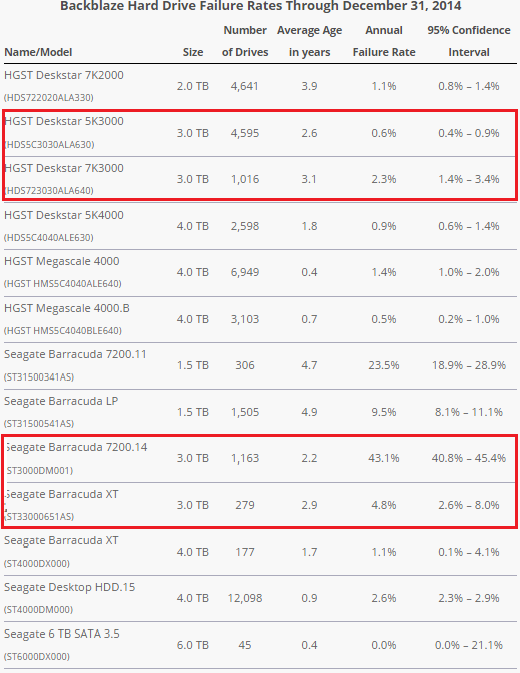Hum maybe I'm interpreting the data differently.
The 3TB Seagates with an incredible 43% failure rate are younger than the HGST.
Years ago Seagate was the only choice. Today HGST is the best IMHO
I have bins of dead Seagate drives if anyone needs any.

I think it's safe to draw the conclusion that that particular model of seagate drive (7200.14) is a problem, and that Deskstars are more reliable on average than the other drives in the chart. Other than that there's very little meaningful information in the table.
The WD info is meaningless for comparison because all the drives are too young, and the two seagate lines above the two you quoted are also meaningless because they're the only drives on the chart that are almost five years old which is where things get dicey for drives.
To be clear, I'm not a fan of seagate at all (seagate
does actually have serious reliability problems); my point is that the chart prepared from that data table is misleading and kind of irresponsible because it compares 5 year old drives to 1 year old drives without any indication that's what's happening.
That doesn't mean seagates aren't unreliable or that the 7200.14 isn't a total lemon; it just means they didn't do a very good job of supporting that conclusion.
They could've just adjusted the data for drive age, or split them into buckets, or weighted it, or done any number of things to present meaningful information. It looks like they recently published their actual raw data set, so hopefully someone will actually do some rigorous analysis at some point.

 Author
Topic: One data point on hard drive reliability (Read 3338 times)
Author
Topic: One data point on hard drive reliability (Read 3338 times)

